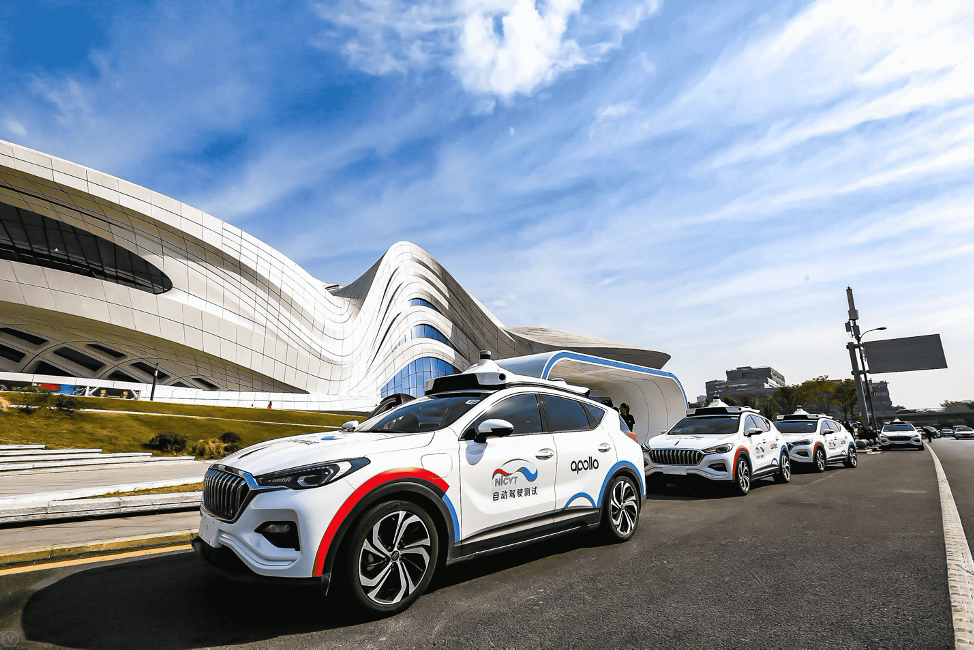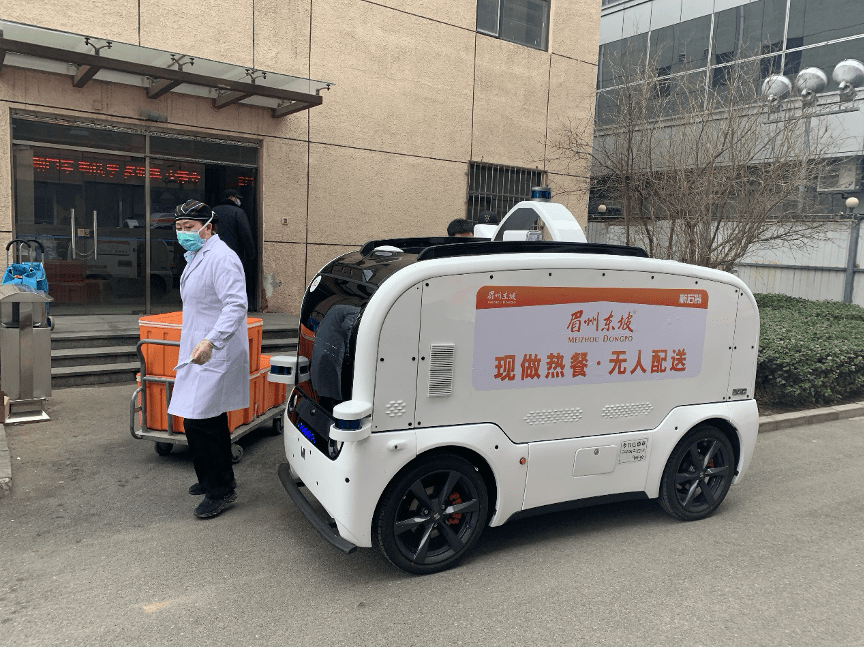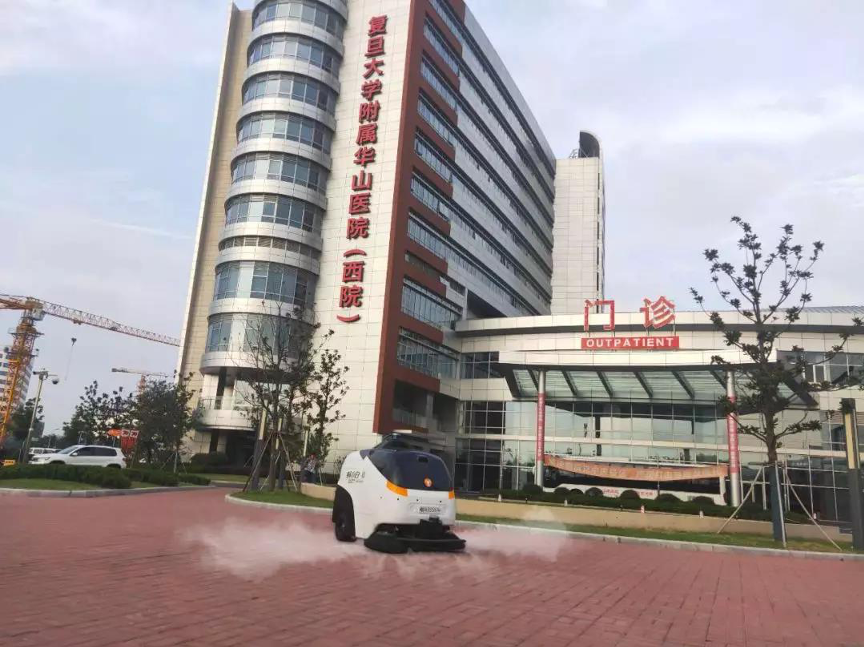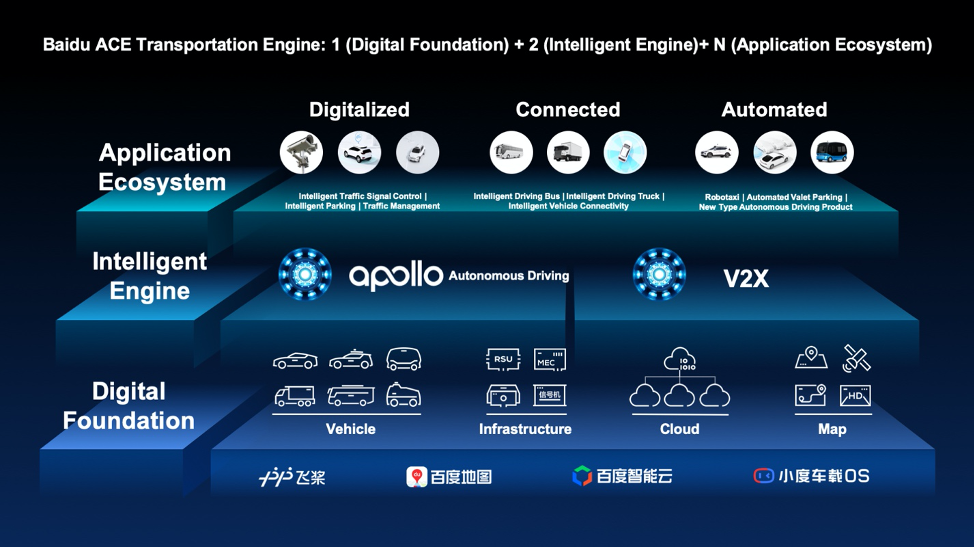Sponsored
How coronavirus is accelerating a future with autonomous vehicles

Provided byBaidu
This content was produced by Baidu.
It was not written by MIT Technology Review’s editorial staff.
Countries around the world have responded to the covid-19 coronavirus with lockdowns, restrictions, and technology solutions that use artificial intelligence to combat the virus. As the world begins to emerge from the pandemic, China is first to emerge from covid-19 imposed lockdowns thanks to cutting-edge technology, with autonomous vehicles and smart cities seeing an acceleration during this time.
In China, new opportunities for the autonomous driving industry and intelligent solutions have stood out. Restrictions on retail, dining, and everyday life during the outbreak have increased demand for driverless deliveries and non-contact operations, both heavily relying on autonomous driving technologies.
How autonomous vehicles are being leveraged to fight the pandemic
As the outbreak progresses, all sectors of Chinese society continue to apply AI, big data capabilities, and robot services to prevent and control the coronavirus.
Autonomous driving has also proved to be essential in the fight against the pandemic, easing the burden of covid-19 by transporting necessary medical supplies and food to health-care professionals and the public in infected areas and disinfecting hospitals and public surfaces to reduce the spread of coronavirus.
“Having been through the pandemic and supported the front line, we realize ‘automation’ and ‘intelligence’ are the best solutions for humans to respond to large-scale emergencies,” said Zhenyu Li, corporate vice president and general manager of the Baidu Intelligent Driving Group.
Baidu, one of the leaders in autonomous vehicle technology, has released 104 driverless vehicles in 17 cities across the country. These autonomous vehicles are helping carry out frontline anti-epidemic work such as cleaning, disinfecting, logistics, and transportation with support from partner companies.
Apollo, Baidu’s autonomous vehicle platform, partnered with Neolix, a local self-driving startup, to deliver food and supplies to the Beijing Haidian Hospital. Together, Apollo and Neolix provided daily food deliveries that help feed over 100 frontline staff members who were treating a growing patient base.

Additionally, Apollo and Neolix deployed unmanned vehicles daily to disinfect all roads on Shanghai Zhangjiang Artificial Intelligence Island. These unmanned vehicles can carry out a full range of disinfectant operations and cover the entire surface of a road. When the vehicle’s self-propelled spray disinfection mode is activated, it can fully cover the island's roads in about half an hour, three times a day. The vehicle’s trolley can be loaded with 160 liters of disinfectant.
Simultaneously, the vehicle can serve as a night-time security robot and create alerts about those who are disregarding the coronavirus prevention guidelines, such as not wearing masks or gathering in large crowds.
Apollo also partnered with iDriverPlus to provide autonomous vehicles to 16 hospitals for covid-19 treatments nationwide. Each hospital is being supported with one or two disinfectant and delivery vehicles, aiming to minimize person-to-person transmission and alleviate the shortage of medical staff. Driverless cleaning and disinfection vehicles are operating in the Huashan Hospital, affiliated with the Shanghai Medical College of Fudan University, and The Eye, Ear, Nose, and Throat Hospital of Fudan University. These initiatives are being provided for free until the pandemic subsides.

Baidu’s Apollo has also made its low-speed driverless micro-car kits and autonomous driving cloud services available at no charge to companies that are dedicated to fighting covid-19.
While Apollo’s autonomous vehicles have not focused on transporting passengers during the outbreak, Baidu is accelerating its plans to fuse its technology into people’s everyday lives. Starting on April 19, 2020, the company opened the Baidu Apollo Robotaxi service in Changsha, the capital city of Hunan Province. Robotaxis provide free rides to passengers across an area of 130 square kilometers. The services cover residential and commercial leisure areas, as well as industrial parks.
V2X is driving the development of autonomous vehicles
Since early 2020, the challenges of the pandemic have stimulated digital transformation and development in China. The country is aiming to push “new infrastructure,” a new technology-driven structural upgrade of the economy, by further developing 5G networks, constructing more data centers across the nation, and revamping local city management systems with emerging technologies.
An instrumental component of China’s development of smart cities is Vehicle-to-Everything (V2X), a comprehensive technology that enables vehicles to communicate with the environment, aiming to make autonomous vehicles safer, smarter, more economical, and convenient.
“Along with the continuous intelligence development of an individual autonomous vehicle, V2X will reduce the high cost of autonomous vehicles and provide more guaranteed safety through redundancy,” said Li.
Over the past three months, Baidu Apollo has won bids to build V2X pilot zones in Chongqing’s Yongchuan district, Shanxi province’s Yangquan city, and Anhui province’s Hefei city. A V2X pilot zone within 20 square kilometers of Yongchuan district in Chongqing, is testing level-4 autonomous vehicles, which can drive almost all the time without human control. It is also collaborating with Baidu on the development of a 3,000 square meter intelligent network hub in Yongchuan’s Big Data Industrial Park for research on testing technologies and standards. In addition, Yangquan City is constructing a 10-kilometer test and demonstration zone for V2X, where Apollo will update its roadside systems by deploying sensors, transmission, edge computing servers, and signal collections systems, controlled and viewed by a Baidu public cloud-based control platform and vehicle monitoring platform.
As a result of these advances, Baidu has become integral to the development and transition toward smart cities. Recently, Baidu Apollo released the ACE Transportation Engine (Autonomous driving, Connected road, Efficient mobility), a full-stack solution helping cities build intelligent transportation systems. The ACE Transportation Engine integrates AI with infrastructure, equipment, services, and industry governance. It also provides transportation systems with real-time insights, instantaneous responses and intelligent decision-making capabilities.
The ACE Transportation Engine is creating a dynamic intelligent vehicle innovation ecosystem and a modern transportation system that delivers safety, convenience, efficiency, environmental protection and cost-effectiveness. More than 10 cities in China have implemented the engine.

Prior to covid-19, autonomous vehicles were not as widely used in China as they are today. Unmanned vehicles were limited by technical capabilities. The pandemic awakened a need for autonomous vehicles to improve safety, deliver supplies and advance new infrastructures. Throughout the country, hospitals and cities are using autonomous vehicles to help control and decrease the spread of the coronavirus.
Baidu is supporting technologies to help transform and create a new future through autonomous vehicles. Covid-19 is accelerating the development of autonomous vehicles and smart cities in China, leading to new breakthroughs and expansion which will minimize the impact of the pandemic and create a new infrastructure to enable better future outcomes. For countries around the world, the developments in China can be used to drive better outcomes for themselves as the world looks to end the covid-19 pandemic as quickly as possible.
Keep Reading
Most Popular
Large language models can do jaw-dropping things. But nobody knows exactly why.
And that's a problem. Figuring it out is one of the biggest scientific puzzles of our time and a crucial step towards controlling more powerful future models.
How scientists traced a mysterious covid case back to six toilets
When wastewater surveillance turns into a hunt for a single infected individual, the ethics get tricky.
The problem with plug-in hybrids? Their drivers.
Plug-in hybrids are often sold as a transition to EVs, but new data from Europe shows we’re still underestimating the emissions they produce.
Stay connected
Get the latest updates from
MIT Technology Review
Discover special offers, top stories, upcoming events, and more.